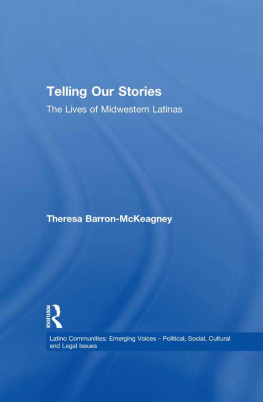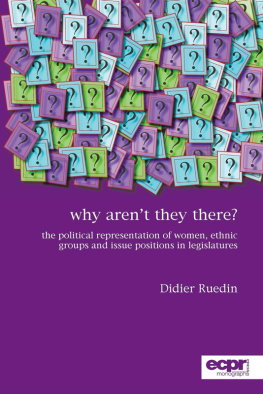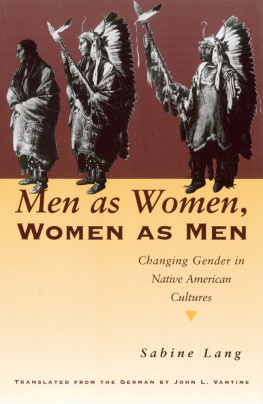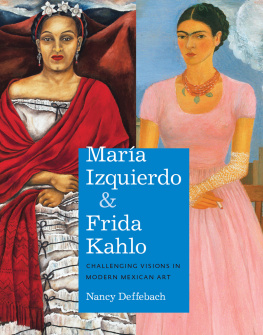
Mexican American Women, Dress, and Gender
Mexican American women have endured several layers of discrimination deriving from a strong patriarchal tradition and a difficult socioeconomic and cultural situation within the US ethnic and class organization. However, there have been groups of women who have defied their fates at different times and in diverse forms.
Mexican American Women, Dress, and Gender observes how Pachucas, Chicanas, and Cholas have used their body image (dress, hairstyle, and body language) as a political tool of deviation; and intends to measure the degree of intentionality in said oppositional stance. For this purpose and, claiming the sociological power of photographs as a representation of precise sociohistorical moments, this work analyzes several photographs of women of said groups with the aim of proving the relevance of other body images in expressing gender and ethnic identification, or disidentification from the mainstream norm.
Proposing a diachronic, comparative approach to young Mexican American women, this monograph will appeal to students and researchers interested in Chicano History, Race and Ethnic Studies, American History, Feminism, and Gender Studies.
Amaia Ibarraran-Bigalondo is a lecturer at the University of the Basque Country, Spain.
Routledge Research in Gender and Society
Masculinities, Sexualities and Love
Aliraza Javaid
Body, Migration, Re/constructive Surgeries
Making the Gendered Body in a Globalized World
Edited by Gabriele Griffin and Malin Jordal
Gender and Migration
Intersectional Prospects
Anna Amelina and Helma Lutz
Gender and Precarious Research Careers
A Comparative Analysis
Edited by Annalisa Murgia and Barbara Poggio
Prostitution, Pornography and Trafficking in Women
Israels Blood Money
Esther Hertzog and Erella Shadmi
Mexican American Women, Dress, and Gender
Pachucas, Chicanas, Cholas
Amaia Ibarraran-Bigalondo
Trauma, Womens Mental Health, and Social Justice
Pitfalls and Possibilities
Emma Tseris
Wellness in Whiteness
Biomedicalisation and the Promotion of Whiteness and Youth among Women
Amina Mire
For more information about this series, please visit: www.routledge.com/sociology/series/SE0271
Mexican American Women, Dress, and Gender
Pachucas, Chicanas, Cholas
Amaia Ibarraran-Bigalondo
First published 2019
by Routledge
2 Park Square, Milton Park, Abingdon, Oxon OX14 4RN
and by Routledge
52 Vanderbilt Avenue, New York, NY 10017
Routledge is an imprint of the Taylor & Francis Group, an informa business
2019 Amaia Ibarraran-Bigalondo
The right of Amaia Ibarraran-Bigalondo to be identified as author of this work has been asserted by her in accordance with sections 77 and 78 of the Copyright, Designs and Patents Act 1988.
All rights reserved. No part of this book may be reprinted or reproduced or utilised in any form or by any electronic, mechanical, or other means, now known or hereafter invented, including photocopying and recording, or in any information storage or retrieval system, without permission in writing from the publishers.
Trademark notice: Product or corporate names may be trademarks or registered trademarks, and are used only for identification and explanation without intent to infringe.
British Library Cataloguing-in-Publication Data
A catalogue record for this book is available from the British Library
Library of Congress Cataloging-in-Publication Data
A catalog record for this book has been requested
ISBN: 978-0-367-10942-4 (hbk)
ISBN: 978-0-429-02401-6 (ebk)
Typeset in Times New Roman
by Apex CoVantage, LLC
To My Magnificent Eight
They Know
Contents
This work arose as a mixture of an academic and a personal drive. An academic one, because that is what I am now. A personal one, because the need to connect the personal to the academic has always been there, in me. This is, thus, a personal work, which could never have been accomplished without the help and support of many. First, without the love and support of my family, of Malen and Nora, who have always enjoyed coming to the other side of the world with me, where ama goes to University every morning. Of Diego, who has always understood me, and supported me unconditionally, in his way. Of Felipe and Karmele, my parents, who have made an effort as big as mine throughout all these years, understanding and respecting my difference during my young, loco years, and today, accompanying me to the other side of the world, physically, him, and emotionally and spiritually, her. Of Irantzu and Awa, who are always with me, here and there, in our side of the world, and in the other, too. Of Josu, for being who he is. Difference makes you the best, my dearest bro. I love you all dearly. Of Mara Herrera-Sobek, a source of inspiration, academic and personal. I owe you a lot, Mara. Of Francisco Lomel, who has always been ready to help and welcome me. Thank you both, very sincerely. Of my beloved friends, Esti and Yolanda, I could not live without our daily conversations and confessions, you are the best friends and colleagues one could ever have. Of all my friends at the UPV/EHU (David, thank you for taking me out for coffee, always), and those outside University. I am who I am thanks to you, too. Of the happiest, most energetic person and friend, Virginia. You saved this project. It will happen next time. Of all those friends who were happy to know it was happening. You are all important to me. Of all those who wanted but could not help, Beni, David, Senen. What great artists you are. Of all the institutions that supported me in this way: USAC, MINECO (project code: FFI201452738-P), of the REWEST team (Grupo Consolidado IT120616) (thank you Angel for following me; thanks, David, for making this up). Of those who, without knowing me, tried to help: special thanks to Catherine Ramrez, Simon Elliot, Diego Vigil, Devra Weber, Luis C. Garza, and many others. I wish there were more people like you. And why not, of those who did not want to help.
Thank you all. Next time it will all be different.
I started writing this book out of curiosity and as a personal drive. My career as an academic started as long as 20 years ago. Or maybe more. Maybe my career as an academic started when I first took an American Literature class with my much-admired lecturer then, and friend and colleague later, Vickie Olsen. I was young and looked different then. And I knew it, and I liked it and I probably consciously looked for it. It was the end of the Eighties and the Basque Country, where I was born and raised, was a sociologically, culturally and politically intense place. Too intense, probably, but that was what it was. In that intense sociocultural and political situation, young people rebelled. Some became fiercely nationalistic, others complied to the norm and some (including myself) were fascinated by a powerful alternative, pseudo-anarchist movement, where angry punk music, occupied and self-managed cultural spaces (







